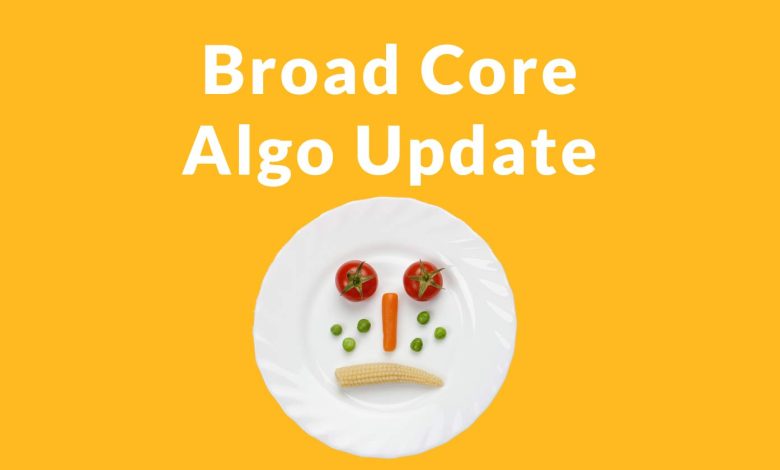
Two well-regarded websites have experienced a decline in traffic due to the June Core Algorithm Update. This unexpected decrease questions the common belief that expertise, authoritativeness, and trustworthiness (E-A-T) are key to recovering from such updates.
High Authority Websites Experience Ranking Losses
Several authoritative sites lost their rankings during the June 2019 Core Algorithm Update. This development highlights a potential flaw in the theory that elements like E-A-T directly cause ranking drops. These sites did not lack in expertise, authority, or trustworthiness.
A UK news outlet, The Daily Mail, faced significant traffic reductions due to Google’s June 2019 algorithm update. Similarly, a bitcoin news site, CCN, announced its closure as a result of the Google Update, reporting that their Google search traffic dropped by over 71% on mobile devices overnight, resulting in over a 90% decline in daily revenue.
In a blog post explaining its shutdown, CCN mentioned that another bitcoin news site, CoinDesk, was also experiencing traffic losses: "The leading blockchain news site, CoinDesk, reported a 34.6% drop according to Sistrix.com." CoinDesk is a leader in its field, making it surprising that they also suffered traffic loss due to Google’s June 2019 Broad Core Algorithm Update.
Is Trustworthiness an Issue for the Daily Mail?
MediaBiasFactCheck.com labels the Daily Mail as an unreliable news source, citing sensationalized headlines and emotionally charged wording in articles. For instance, the story "Woman, 63, ‘becomes PREGNANT in the mouth’ with baby squid after eating calamari," was labeled as fake news but was in fact based on a true event documented by the U.S. National Institute of Health.
Who is MediaBiasFactCheck.com?
MediaBiasFactCheck.com is a for-profit organization. According to their FAQ, it is owned by Dave Van Zandt, who also makes all editorial decisions. Van Zandt holds a Communications Degree and previously pursued studies in the sciences. He has worked in the healthcare industry and spent over 20 years researching media bias.
What Does Pulitzer Prize Winner Politifact Say?
Politifact, a trusted nonprofit organization, offers a slightly different perspective. Their page about the Daily Mail includes a citation of one clickbait article concerning Brexit. This suggests that Politifact may not fully agree with MediaBiasFactCheck.com’s assessment of the Daily Mail’s trustworthiness.
Wikipedia notes that The Daily Mail has faced criticism for unreliability, sensationalist stories, and copyright violations, although it has also received numerous awards, including the National Newspaper of the Year title from the British Press Awards seven times since 1995.
Is the Daily Mail, the second most-read newspaper in the UK, truly untrustworthy? This question remains open for readers to decide.
Google Webmaster Help Forum Provides Limited Assistance
In my view, Google’s Webmaster Help Forum often offers standard advice that may not fit specific situations. When this advice is unsuitable, participants may turn against those seeking help, focusing on minor issues without diagnosing the real reason for ranking loss.
According to CCN, Google’s Webmaster Help Forum did not provide useful support: "We sought guidance in Google’s Webmasters Forum, but while appreciating the help offered, their theories for our situation didn’t seem entirely accurate."
The advice CCN received included registering with Google My Business and vague recommendations that did not address their specific issues effectively.
Quality Raters Guidelines Not a Diagnostic Tool
Google’s algorithms are more complex than the guidelines provided by the Quality Raters Guidelines. While useful for creating quality content, these guidelines are not intended to diagnose why a site may no longer rank well in search results.
Google’s mission is to organize the world’s information to make it universally accessible and useful, with relevance and usefulness being key. Therefore, a site’s ranking loss may be more due to relevance issues than content quality.
The SEO community should explore beyond the Quality Raters Guidelines when dealing with algorithm-related ranking issues.
E-A-T Not a Fix-All Solution
Broad-core algorithm updates involve a wide scope of improvements designed to enhance Google’s understanding of search queries, page relevance, and user utility. Assuming that E-A-T alone can rectify update-related issues is an oversimplification.
Google’s indication that "there’s nothing to fix" implies that comprehensive issues affecting algorithm updates extend beyond mere content quality or E-A-T concerns. Consequently, focusing solely on E-A-T for algorithm updates is misguided.
Conclusion
The experiences of major websites like CCN and the Daily Mail suggest that reducing Google’s Broad Core Updates to a few factors is inadequate. Understanding ranking issues should involve considering a broader array of elements, including search result analysis.


